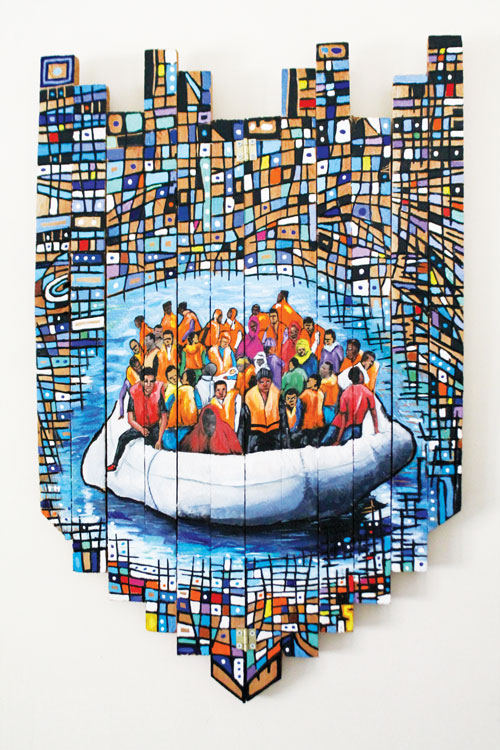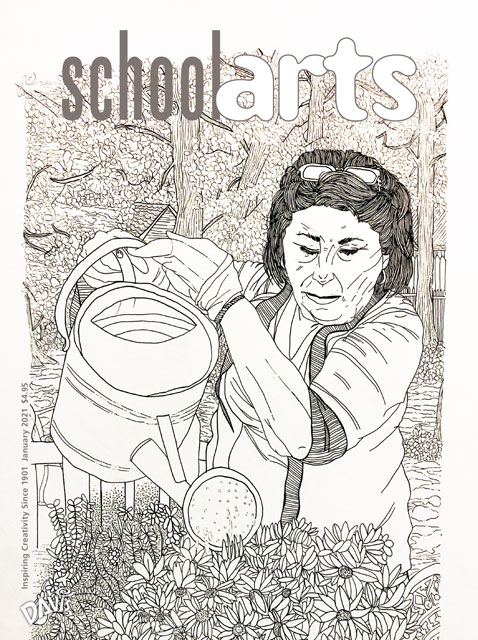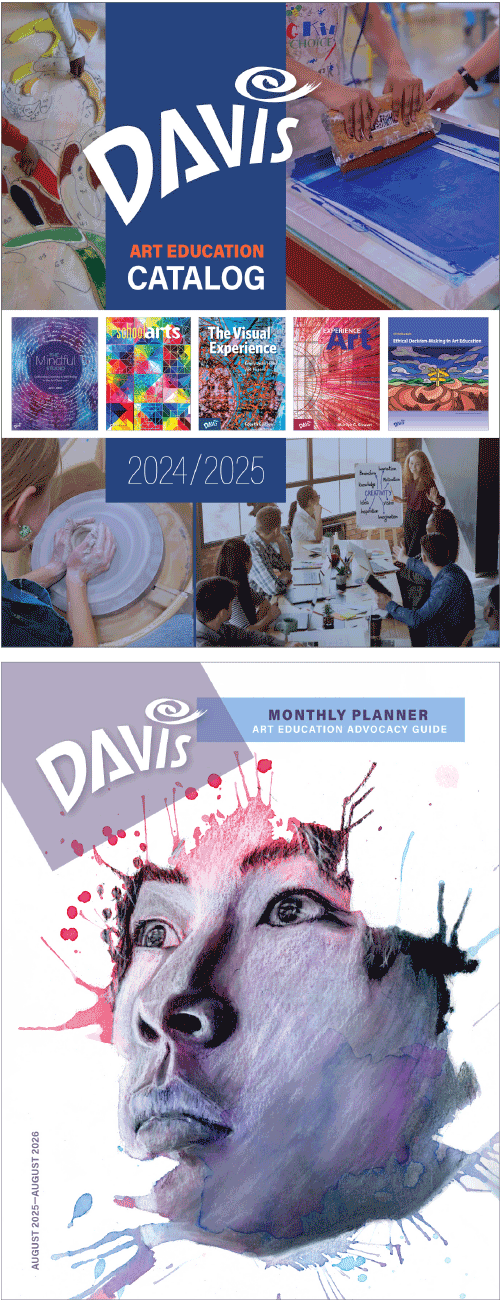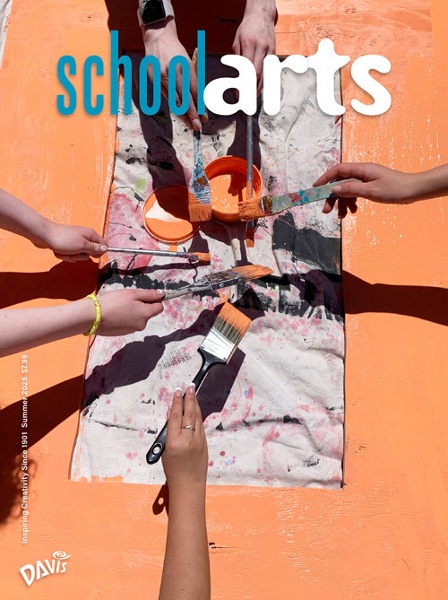 Baba Musah Swallah, By boat. Acrylic on wood. Image courtesy of the artist.
Baba Musah Swallah, By boat. Acrylic on wood. Image courtesy of the artist.Invariably, when anti-racist content was shared, commenters would criticize or question its value or attack the person who shared it. The same problems repeatedly surfaced, preventing constructive dialogue and sharing of resources.
A New Space
Anti-Racist Art Educators (ARAE) was created on Facebook in 2019 in response to the intolerance and racism of other art education social media groups. It was founded to be a place where the need to address and counter racism in education is inarguable and an exchange of ideas can occur. In 2020, as the world responded to the deaths of Breonna Taylor, George Floyd, and Ahmaud Arbery, many arts educators were looking for a brave space like ours and our numbers exponentially increased.
Topics Discussed
Recurring topics in our group include: decentering whiteness in classroom activities and curriculum, cultural appropriation, and counteracting racist spaces with reflective dialogue. We center those conversations by holding each member responsible to elevate the voices of the global majority, to acknowledge and name white fragility, and to participate in a reciprocal learning exchange.
The collective voices of our group have defined Anti-Racist Art Education through an evergreen manifesto (see below).
Anti-Racist Art Education...
- actively and vocally works to dismantle white supremacy and Eurocentric art history and voices; knows that white people don’t experience racism or have a full grasp of what constitutes anti-racism; centers the listening on the global majority (black, Latinx, indigenous, Asian/Pacific Islander, mixed-race) and marginalized communities.
- understands that art has been used throughout history to support violent racial power dynamics and believes that silence about issues of racial injustice only serve to benefit racist ideology.
- seeks to critically engage with this history while building a space within the art room where students can show up as their authentic selves without fear of persecution.
- forces all educators to be aware of their own race, privilege, intersectionality, and positioning in their society and the specific learning community, prompting them to work towards undoing their own racism, biases, and prejudices.
- acknowledges that we don’t live in a post-racial society and that racism and other -isms such as class, disability, trans and queerphobia, homophobia, xenophobia, etc., intersect to create a matrix of oppression for certain people.
- consistently elevate/integrate global art and cultures outside of compartmentalized, government-appointed themes and heritage months.
- realizes that our concepts of art are rooted in Eurocentric ideas and aesthetics; art should be rooted in liberation, engage in social justice, and confront dominant and submissive narratives inclusive of imagery and resources that ensure representation.
Group Specifics
We have developed guidelines for posting on our page and hold our members accountable for their engagement. These guidelines set healthy boundaries and model how art educators should approach anti-racism in their classrooms. As art permeates into various disciplines, we have not limited posting to visual arts only, but are inclusive of cultural heritage, dance, music, theater/drama, literary, and spokenword arts. The group is to elevate the perspectives of the global majority and diversify with intentionality.
Uplifting Voices
ARAE attempt to intersect multicultural, social justice, culturally responsive education, and critical and cultural consciousness pedagogies to provide an improved and disruptive framework of status-quo teaching.
The arts are a bridge for our communities. They can create a platform to uplift marginalized voices and empower the disempowered. It is time to unlearn racist pedagogies that have placed us into a deteriorating and oppressive cycle. Many of us have been indoctrinated throughout our lives with this blindness. Now is the time to use art education as a platform to unapologetically press forward as anti-racist and anti-oppressive educators!
Tara Trinity Villanueva is arts integration and culture program manager at Carlos Rosario International Public Charter School in Washington, DC, and a moderator for ARAE on Facebook. TaraTrinity2@gmail.com; Contributing Editors: Melissa Purtee is an admin and Shawna McLeod is a moderator for ARAE. MCPurtee@gmail.com
RESOURCE
Anti-Racist Art Educators: sites.google.com/view/antiracistartteachers/home
View this article in the digital edition.


 Baba Musah Swallah, By boat. Acrylic on wood. Image courtesy of the artist.
Baba Musah Swallah, By boat. Acrylic on wood. Image courtesy of the artist.